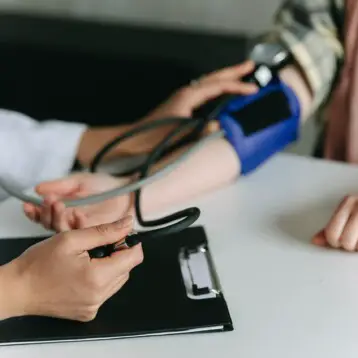Each year almost 100,000 people in the U.S. alone dies due to healthcare-associated infections (HAIs). Many of those could have been avoided if proper hygiene regulations have been followed more carefully by hospital stuff. To counter this issue an Israeli company developed a special bracelet that monitors hospital’s hand hygiene helping them and their patients reduce the number of infections.
According to the Center for Disease Control (CDC) in 2002 the number of infections associated with healthcare givers in hospitals in the U.S. was an unbelievable 1.7 million. Out of which an estimated 98,987 patients died. The medical community worldwide has acknowledged HAI as one of the most serious threats to patients and is encouraging hospitals to increase awareness among the medical stuff. In Belgium – a country which decided to fight HAI, 4 consecutive one-month campaigns were organized to promote hand hygiene in hospitals between 2005 and 2011. The campaigns were said to be extremely successful in increasing awareness to the problem, but even the most professional and well aware healthcare workers can forget basic hygiene regulations from time to time especially under the very stressful conditions of hospital work.
–
–
Enters hyginex an Israeli start-up company with a simple but rather ingenious idea. The company developed a bracelet (which kind of look like a watch but has no display), warn on the hand of each medical stuff member. The bracelet includes gyroscopes as well as other movement sensors and has a tiny red LED light to remind medical person to wash their hands between patients. The bracelet works by connecting wirelessly with other sensors which are located on a regular soap and hand sanitizer dispensers (also provide by Hyginex).
–
–
Each time a doctor or a nurse get close to a patient and a dispenser (the hospital usually put one in each room or next to each bed) the bracelet interacts via wireless connection with the dispenser sensors to detect proper hand washing and hand hygiene habits. It also reminds the doctor or nurse to wash his/her hands when needed. The bracelet knows not just that the care giver washed his/her hands but also if they have done so correctly and for a long enough period of time (typically at least 15 seconds). This information is also passed along to the hospital managers who keeps track of stuff members and their hygiene regimen and can reprimand stuff members that will not comply with hospital regulations.
–
–
Efrat Raichman – who founded Hyginex in 2008 after her uncle past away from contracting an infection in a hospital believes that Hyginex bracelet can literally save lives. The bracelet has been undergoing trails since 2011 in Rambam hospital in Israel and will not only save lives but could also save the health care system a lot of money (HAI is estimated to cost of over $30 billion to US hospitals each year).
–
–
More information can be found on the Hyginex website.










